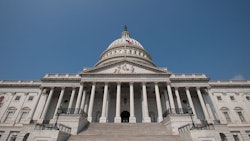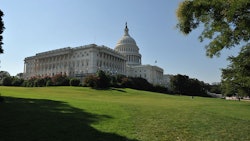Provision prohibits the Department of Justice – which includes the D.E.A. – from using funds to interfere in state medical marijuana laws; the amendment, which was defeated six times from 2003-2012, is the first-ever rollback of the federal government’s war on medical marijuana patients and caregivers
Bill also includes an amendment that prohibits the District of Columbia from regulating and taxing marijuana
[Press Release] WASHINGTON, D.C. – Passage of the federal spending bill Saturday evening marked the first time in history that Congress has approved legislation rolling back the federal government’s war on medical marijuana patients and providers.
The bill includes an amendment that prohibits the Department of Justice – which includes the Drug Enforcement Administration – from using funds to interfere with state medical marijuana laws. A similar amendment has been offered seven times in Congress, failing in 2003, 2004, 2005, 2006, 2007, and 2012. The House finally approved it in May when it was offered by Rep. Dana Rohrabacher (R-CA) as an amendment to the Commerce, Justice, Science, and Related Agencies Appropriations Act.
“Congress has finally initiated a drawdown in the federal government’s war on medical marijuana,” said Mason Tvert, director of communications for the Marijuana Policy Project. “This legislation makes it clear that the D.E.A. has no business interfering in states’ medical marijuana laws. Taxpayer money should not be used to punish seriously ill people who use medical marijuana and the caregivers who provide it to them.”
The bill also includes a provision that blocks the District from establishing a regulated marijuana market for adults. The D.C. Council was considering a proposal to regulate and tax marijuana similarly to alcohol. The District’s medical marijuana law and the decriminalization law implemented earlier this year will remain in effect.
“By prohibiting the regulation of marijuana in the District, they are ensuring authorities have no control over it,” Tvert said. “If drug cartels and gangs had lobbyists on the Hill, preventing marijuana regulation would be their top legislative priority. If the District can regulate and tax alcohol sales, it should be allowed to do the same with a less harmful substance like marijuana.”
The federal spending bill also prohibits the U.S. Justice Department from interfering with state-level hemp laws.
“Congress is finally catching up with public opinion on medical marijuana and industrial hemp, but it still has quite a way to go when it comes to broader marijuana policy.”
The Marijuana Policy Project, the nation’s largest marijuana policy organization, has been responsible for changing most state-level marijuana laws since 2000. For more information, visit http://www.MarijuanaPolicy.org.



























